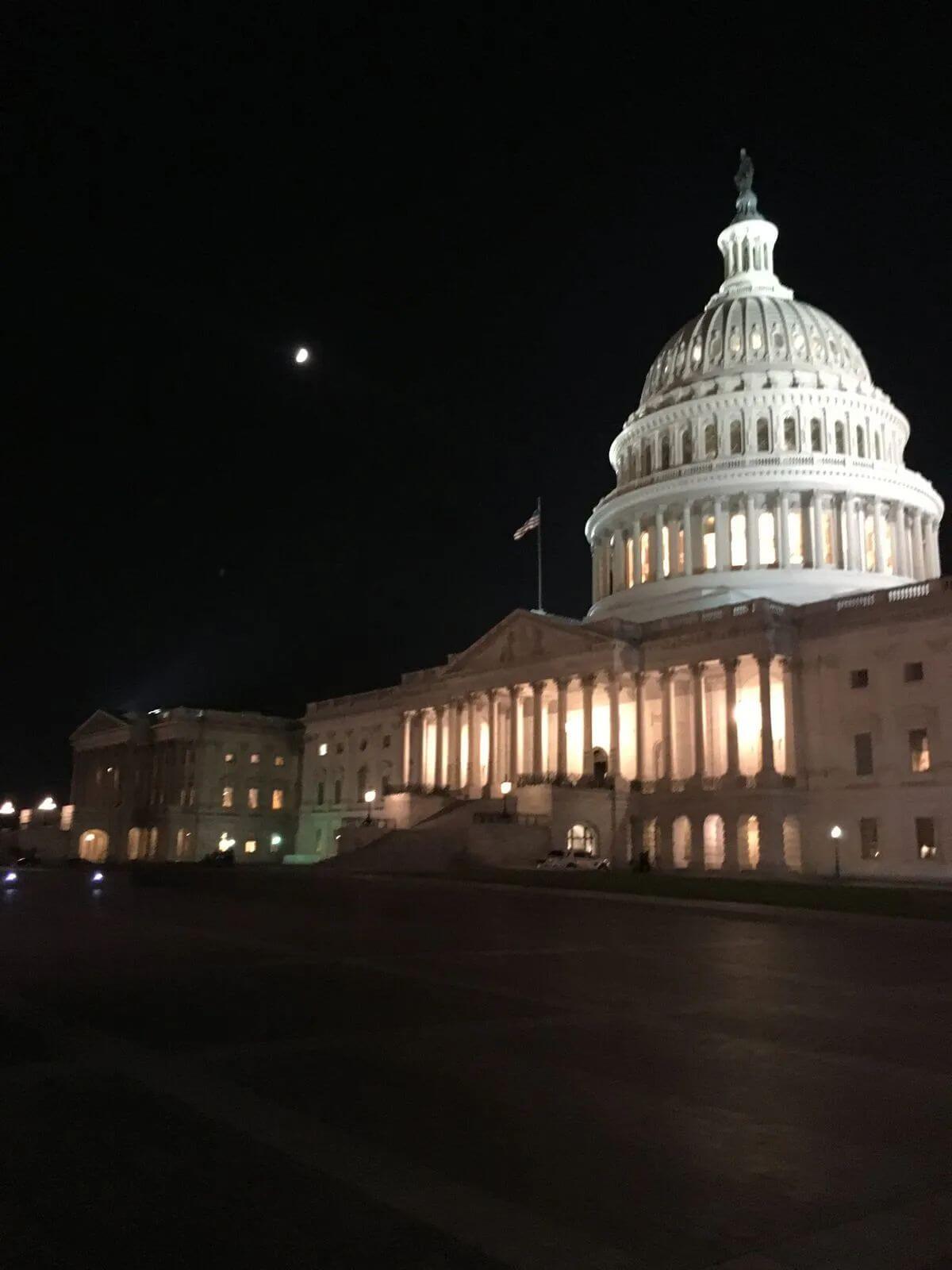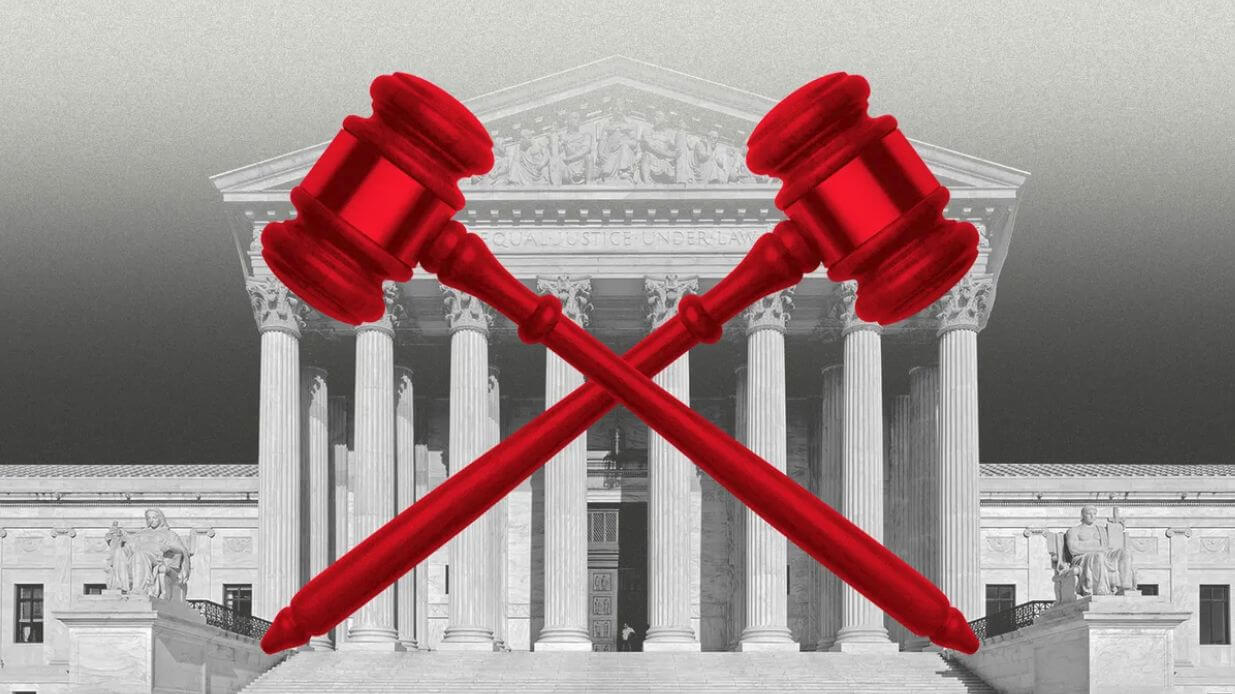1/22 Torchbearer Weekly Policy Update
Hope you had a great weekend. Thank you letting us be your trusted source for local, state, and federal policy updates.
- The Child Tax Credit May Expand In 2024. Here’s What It Means For You
- House, Senate Tax Chiefs Announce Deal On Business Deductions, Low-Income Credits
- Congress Votes To Avert Shutdown, Sending Short-Term Bill To Biden’s Desk
- Indiana Could Rake In Millions More Off Legalized Internet Gambling Than Previously Estimated, Report Says
- Governor Leading Trade Delegation To Canada
- Supreme Court Declines to Weigh in on Battle Over Bathrooms for Transgender Students
- Share the Torchbearer Newsletter with Your Network!
- Important Dates
Let’s dive in.
The Child Tax Credit May Expand In 2024. Here’s What It Means For You

Congressional negotiators announced a roughly $80 billion deal on Tuesday to expand the federal child tax credit that, if it becomes law, would make the program more generous, primarily for low-income parents, as soon as this year.
Why it matters: The deal would make the existing child tax credit more generous, a major Democratic priority. In exchange, it would also continue several business tax breaks favored by corporate America, a Republican priority.
By the numbers: The biggest change in the deal is that it would make the credit more generous for families that currently earn too little to claim it in full.
The big picture: The bipartisan agreement was reached by Senate Finance Committee Chairman Ron Wyden (D-Ore.) and House Ways and Means Committee Chairman Jason T. Smith (R-Mo.), who had been trying to finalize a deal for months.
What's next: But any bill’s path to passage remains uncertain, particularly because House Republicans may be reluctant to give President Biden even a partial victory on one of his top domestic economic policy priorities: bringing back something like the expanded child tax credit, which was a centerpiece of his 2021 American Rescue Plan. (Washington Post)
House, Senate Tax Chiefs Announce Deal On Business Deductions, Low-Income Credits

Top tax writers in Congress announced a deal Tuesday morning to beef up the child tax credit (CTC) and reinstate business deductions that were taken away to pay for the reduction of the corporate tax rate in the 2017 Tax Cuts and Jobs Act.
Why it matters: The CTC expansion would increase the maximum credit per child to $2,000 from $1,600 through 2025 while restoring business deductions for research and development costs, interest payments and capital investments.
By the numbers: The proposal boosts the amount in capital expenditures that small businesses can immediately write off to $1.29 million from $1 million, along with increasing the reporting threshold for subcontractor work to $1,000 from $600.
The big picture: The deal aims to provide greater tax relief, strengthen Main Street businesses, boost competitiveness with China, and create jobs.
What's next: What the final legislative vehicle for the tax deal could be, and whether it will make it into law before tax season starts on Jan. 29, remains to be seen. (The Hill)
Congress Votes To Avert Shutdown, Sending Short-Term Bill To Biden’s Desk

The House approved a short-term spending bill Thursday to keep the government funded through March, sending the stopgap to President Biden’s desk for his signature one day before a partial shutdown deadline.
Why it matters: The passage of the stopgap marks a cleared hurdle for Speaker Mike Johnson (R-La.) and buys lawmakers more time to finish the formal appropriations process.
The big picture: Challenges loom for Johnson as he tries to secure conservative policy riders and faces opposition from conservative Republicans.
What's next: Lawmakers will continue negotiations on the 12 annual appropriations bills and work towards avoiding a shutdown in March. (The Hill)
Indiana Could Rake In Millions More Off Legalized Internet Gambling Than Previously Estimated, Report Says

Indiana could generate millions more in taxes from internet gambling than previously estimated, according to a report by the Indiana Gaming Commission.
Why it matters: The updated report highlights the potential economic benefits of legalizing i-gaming in Indiana.
By the numbers: The report found that Indiana could bring in between $413 million and $929 million in tax revenue over the first three years of legalization.
The big picture: Legalizing internet gambling could provide a boost to Indiana's economy and create job opportunities in the gaming industry.
Yes, but: Recent scandals and legislative moratoriums have hindered the progress of gambling expansion efforts in Indiana.
What's next: The report provides valuable insights for policymakers and regulators as they consider the potential legalization of i-gaming in Indiana. (IBJ)
Governor Leading Trade Delegation To Canada

Gov. Eric Holcomb and members of the Indiana Economic Development Corp. will head on another economic development trip to Canada next week.
Why it matters: The trip aims to foster ties with leaders in key sectors including energy, advanced manufacturing, and life sciences.
By the numbers: 78 Canadian-owned businesses operate in Indiana, 41% of which are based in Ontario. Additionally, 28 Indiana-based companies operate in Ontario.
The big picture: The trip is an opportunity for public officials to pitch stronger economic ties in the state.
What's next: The delegation will meet with provincial officials, visit the Darlington Nuclear Generating Station, and participate in roundtable discussions and receptions. (IBJ)
Supreme Court Declines to Weigh in on Battle Over Bathrooms for Transgender Students

The Supreme Court declined Tuesday to decide whether schools can bar transgender students from using a bathroom that reflects their gender identity, leaving in place a lower court ruling that allowed a transgender middle school boy in Indiana to use the boys' bathroom.
What they’re saying: "This is a step in the right direction in our ongoing fight to protect LGBTQ+ youth from anti-equality extremism," the Human Rights Campaign said on X, the social media platform formerly known as Twitter.
Go deeper: The case arrived at the Supreme Court against the backdrop of a shifting legal landscape over transgender issues in schools, including disputes that have played out over sports teams and the use of pronouns by teachers. The decision to deny the case represented a victory for LGBTQ+ advocates, though the question probably will eventually return to the Supreme Court.
In the case before the court Tuesday, an Indiana school district wanted the justices to weigh in, arguing schools “desperately need” a final answer to a debate that isn’t going away and has implications for housing rules, athletics and historically sex-segregated organizations.
Lawyers for the Indiana transgender student said the court shouldn’t take the case; the student is now in high school and able to use his preferred restroom.
Why it matters: The legal questions in Metropolitan School District of Martinsville v. A.C. were whether bathroom restrictions violate both the Constitution’s equal protection clause and a law the prohibits discrimination at schools that receive federal funding.
The bottom line: The Supreme Court has denied similar cases before. In 2021, the high court chose not to review a ruling from the U.S. Court of Appeals for the 4th Circuit involving a transgender boy named Gavin Grimm. The appeals court ruled that bathroom restrictions at a Virginia school amounted to discrimination. (IndyStar)
Share the Torchbearer Newsletter with Your Network!

Not signed up for our weekly newsletter? Sign up today!
Important Dates:

Tuesday, January 30th - House Committee Report Deadline
Thursday, February 1st - House 2nd Reading Deadline
Thursday, February 1st - Senate Committee Report Deadline
Monday, February 5th - House 3rd Reading Deadline
Monday, February 5th - Senate 2nd Reading Deadline
Tuesday, February 6th - Senate 3rd Reading Deadline
Tuesday, February 27th - House Committee Report Deadline
Thursday, February 29th - House 2nd Reading Deadline
Thursday, February 29th - Senate Committee Report Deadline
Monday, March 4th - House 3rd Reading Deadline
Monday, March 4th - Senate 2nd Reading Deadline
Tuesday, March 5th - Senate 3rd Reading Deadline
Thursday, March 14 - Last Day to Adjourn Sine Die
